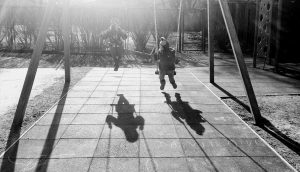
Last month our office provided feedback on SA’s Safeguarding Taskforce Report – a report that examined and outlined gaps in the oversight and safeguarding for people living with disability. This is a summary of our feedback in relation to our role as an oversight body for children and young people in care and/or detention with disability.
It is estimated that approximately one third of children and young people in care have disability, and a recent study of the residents at Kurlana Tapa Youth Justice Centre indicated that nine out of ten residents assessed had disability or disability-related needs. However, the full extent of these numbers is unknown.
There are currently serious limitations on the ability of the Guardian for Children and Young People and the Training Centre Visitor to oversee the circumstances of these vulnerable young people due to staffing constraints and a shortage of necessary, relevant information. As a result, we generally rely on the children and young people contacting our office to tell us what is happening for them. This excludes those children in care who are too young to contact us or who have communication or other disabilities that impede their ability to seek assistance.
During the two-year pilot program of the Child and Young Person’s Visitor program, which concluded in September 2019 and is currently unfunded, OGCYP staff became aware of the significant number of young people with disability who live in residential care. Historically, this cohort’s issues have been predominant in our individual advocacy work and have indicated that the residential care system gives rise to unacceptable amounts of harm and distress to those living in that environment. We do not have accurate data about how many children and young people with disabilities live in residential care, or where they are placed. Nor do we know the nature of disabilities experienced by these young people and what care and support they are receiving.
From our advocacy and monitoring work, we do know that children and young people living in residential care are at risk of harm when poor ‘matching’ of co-residents occurs. A child with disability, for instance, may be particularly vulnerable to influence or coercion if placed with another child or children who exhibit harmful sexual or physical behaviours. Poor, or no, placement matching results in cases of injury and sexual harm and this is exacerbated if there are not sufficient staff to mitigate the risk. Without an adequate capacity to visit facilities and oversee these issues, there is a considerable risk that many of these incidents remain hidden from view.
The Training Centre Visitor and staff are aware of significant concerns relating to the adequate care, treatment and control of children and young people with disabilities in the youth justice centre – particularly when behaviours that are considered a threat to security within a detention environment are actually disability-related. However, it is also heartening to see the recent development of Youth Justice Assessment and Intervention Services and their work to address some of these concerns.
Finally, it is notable that both DHS and DCP staff are often not yet adequately equipped to navigate complex NDIS or other disability systems on behalf of those in their care. This can then result in already socially isolated and institutionalised children and young people leaving the care and/or youth justice systems with little support and limited capacity to navigate adult life.
Our feedback highlighted the need and importance of our office being able to effectively provide oversight and safeguarding measures to lower the real and identifiable risks faced by this vulnerable cohort. With so much stacked up against them, they need to know the adults looking after them are committed to ensuring their individual needs are being met, including their disability needs, so they can thrive in all aspects of their lives.
You can read our full feedback submission here.

One Response
I am very sad to read this and wonder what can be done to advocate for your current work to be funded and extended?